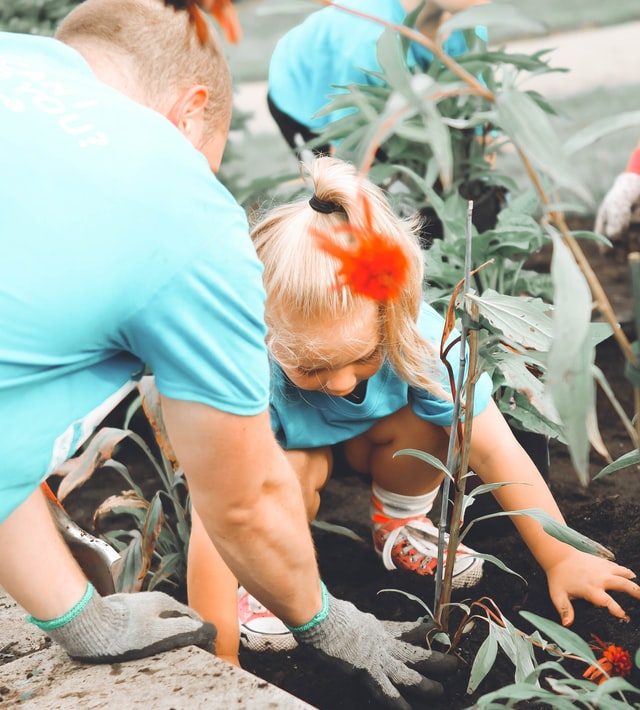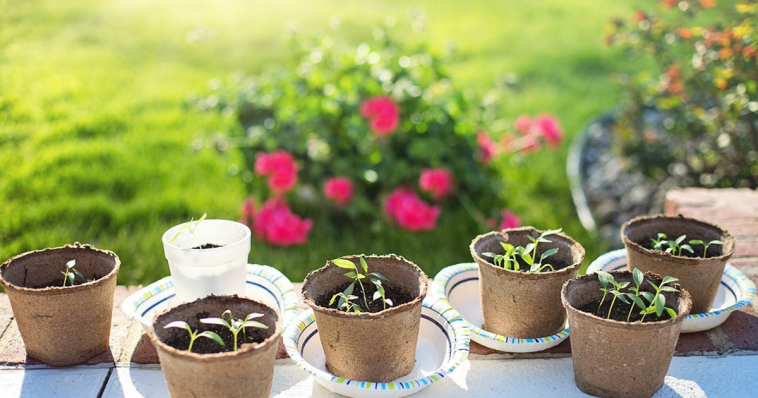Spending time in nature reconnects you with the Earth and grounds you in your true nature, and gardening is one of the best ways to increase this connection. When you plant something in a garden and watch it grow, taking care of it along the way, it gives you a sense of purpose higher than yourself and helps you build roots both literally and metaphorically. Gardening is used in many therapeutic contexts as a form of nature therapy; it is often used as a treatment for PTSD, depression, anxiety, and improving overall wellbeing and mental health.
Regardless of whether you live in a small apartment or a sprawling piece of open land, you can find a way to incorporate gardening into your life and gain the many benefits that nature and gardening can provide to the body, mind, and soul. So, see below for 7 ways that gardening can improve your mental health today!
1. Breathing in Fresh Air and Absorbing Natural Sunlight
Just like a plant, humans also need water, air, and sunlight to grow properly. When you spend a lot of time indoors, it can actually be bad for your mental health due to the lack of fresh air and natural sunlight. Research has shown that when people do not get enough sunlight, they tend to have lower vitamin D levels, which has been linked to higher levels of depression and anxiety. So, by getting regular exposure to sunlight and fresh air, this can improve your body’s natural store of vitamin D and thereby improve your mental health.
2. Moving Your Body and the Release of Endorphins

Gardening is also a physical activity that involves various forms of stretching and strength-building activities. By getting down and dirty with a shovel, you can get some moderate exercise and improve your physical health along the way. Gardening is particularly beneficial for improving both strength and flexibility, and due to its generally moderate nature, it is relatively safe for people of all ages. When you are physically active, this has a direct effect on your mental health as well by releasing endorphins into your bloodstream, often known as the blissful high you get after exercise.
3. Outer Growth Leads to Inner Growth
When you take care of a plant throughout its entire life cycle, it provides you with something to care for other than yourself. This sense of responsibility and the act of becoming more a nurturer can be profoundly healing for your mind and soul. As you watch something grow and care for it along the way, it can lead to profound inner transformation and inner growth as well.
4. Growing Plants and Your Growth Mindset
The growth mindset is a psychological theory for the ability to approach a task with the mindset that it is a learning opportunity rather than approaching it with a need for perfection and a fear of failure. Gardening is not a perfect science and every plant will have its own unique nature. So, by gardening it can teach you to embody this growth mindset in your daily life, releasing your need for perfectionism and embracing a lifestyle of trial and error and an openness to change.
5. Connecting with Others Through Shared Activities

Although gardening can certainly be done individually, it can also be a fun group activity as well. Gardening is something that you can enjoy with your children or with your partner, making it into a family activity. There are also many community gardens that people from an entire neighborhood contribute to together. As you work in these community gardens, it can provide you with the opportunity to meet new people and connect with other like-minded individuals as well. Social connection is essential for mental wellbeing and gardening is a wonderful way to engage in that. Besides human connection, gardening also provides the opportunity to simply connect with other living things and to reconnect with the cycle of life by observing a plant’s natural cycles.
6. Gardening and Mindfulness
Gardening is an inherently mindful activity. When you garden, you automatically move into the present moment and any thoughts or worries gently fade away. Mindfulness has been associated with numerous positive mental health benefits from decreased depression and anxiety to reduced stress. As you garden, you can also try to increase the mindful nature of this activity by trying to be actively aware of the sensations of the plants against your skin and the movement of your body throughout the garden.
7. Eating Healthy Foods
The clearest beneficial result of gardening is that you get a lot of fresh and delicious fruits and vegetables. Besides the many benefits that healthy eating has on your physical and mental health, eating foods that you have grown yourself also comes with a great sense of accomplishment and can increase your self-confidence. When you grow your own healthy foods, you can make beautiful salads and dishes that remind you of the journey that you had throughout the growing process while also filling your body with healthy nutrients.
Summary
Gardening is a wonderful activity to incorporate into your life to improve your physical and mental health. Not only is gardening simple to do, but it reconnects you with the Earth and with your food. Often when we go to the grocery store and buy foods, we are deeply disconnected from the processing of our foods; we are unaware of how they grow and of the energy that goes into them. But, by gardening and growing your own fruits and vegetables, you can become reconnected to the foods that give you life and you can deepen your connection with yourself along the way. So, try incorporating gardening into your daily life and gain the many benefits of this practice to your body, mind, and soul.
Don’t forget to share the wonderful benefits of gardening with your family and friends as well and send this article along to start planning how you might start a community garden together!



